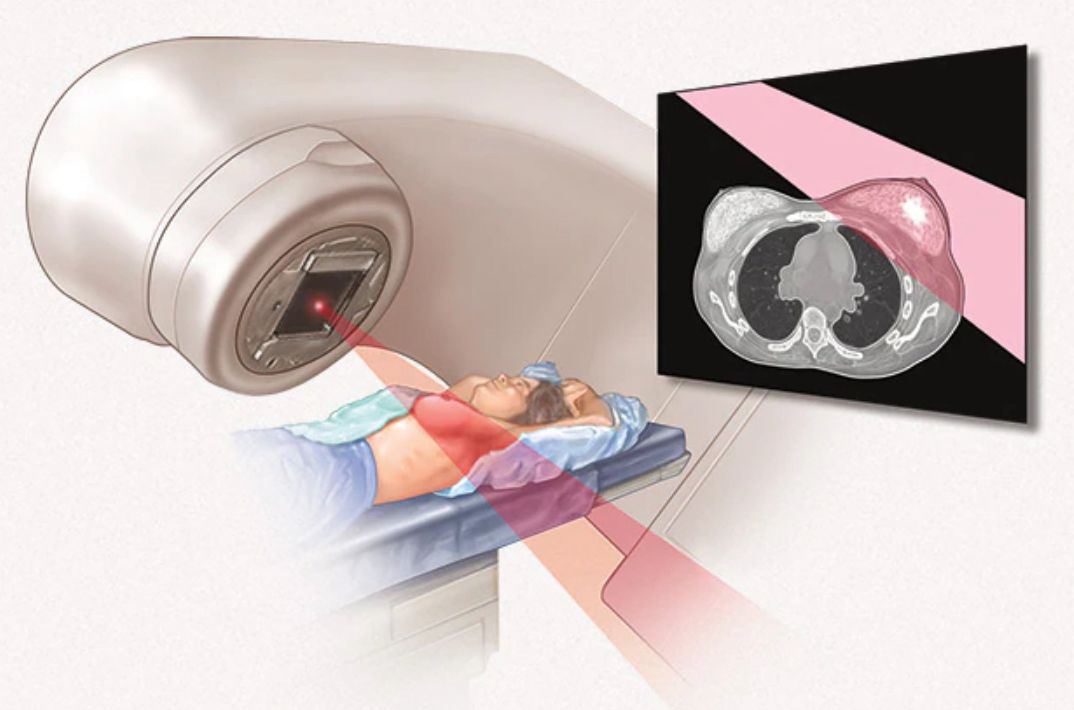🔆What is Radiation Oncology? Understanding Cancer Treatment Through Precision and Science
Cancer is a word that brings many emotions – fear, confusion, urgency – but it also brings options. One of the most powerful and precise tools in modern cancer care is radiation therapy, overseen by specialists known as radiation oncologists. But what exactly does this branch of medicine involve?
Let’s break it down.
🎯 The Science Behind Radiation Therapy
Radiation oncology is the medical specialty focused on using high-energy radiation to treat cancer. The goal? To destroy cancer cells or stop them from growing, while preserving healthy tissue as much as possible.
Radiation works by damaging the DNA inside cells. While normal cells have the ability to repair themselves, cancer cells are more vulnerable and often can’t recover, eventually leading to their death. Over time, the tumor shrinks or disappears.
🧭 When is Radiation Therapy Used?
Radiation therapy can play multiple roles in a patient’s cancer journey:
- Curative: As a primary treatment to eliminate cancer (e.g., early-stage prostate or head & neck cancers).
- Adjuvant: After surgery, to destroy microscopic cancer cells that may remain (e.g., in breast or brain tumors).
- Neoadjuvant: Before surgery, to shrink tumors and make them easier to remove (e.g., rectal cancer).
- Palliative: To relieve symptoms such as pain, bleeding, or pressure in advanced cancers.
- SRS/SRT & SBRT: These are highly precise, high-dose radiation techniques used for small, well-defined tumors – like in the brain, lungs, spine, or liver. They offer curative potential in fewer sessions, with minimal side effects.
Radiation may be given alone or in combination with chemotherapy, immunotherapy, or surgery – depending on the type and stage of cancer.
⚙️ Types of Radiation Therapy
There are two major categories:
1. External Beam Radiation Therapy (EBRT)
The most common form. A machine delivers radiation beams from outside the body, targeting the tumor with high precision. Techniques include:
- IMRT (Intensity-Modulated Radiation Therapy) – adjusts beam intensity for complex-shaped tumors
- IGRT (Image-Guided Radiation Therapy) – uses real-time imaging to ensure accurate delivery
- SRS/SBRT (Stereotactic Radiosurgery/Body Radiotherapy) – ultra-precise, high-dose treatments in fewer sessions
2. Brachytherapy
Also known as internal radiation. Tiny radioactive sources are placed inside or near the tumor. This is commonly used in cancers of the cervix, uterus, prostate, and head & neck.
🧑⚕️ Role of the Radiation Oncologist
Radiation therapy isn’t just about machines – it’s a carefully coordinated plan led by a radiation oncologist, supported by a team of medical physicists, radiation therapists, and oncology nurses.
The process includes:
- Consultation & Assessment: Determining if radiation is appropriate
- Treatment Planning (Simulation): Using CT/MRI scans to map the treatment area
- Delivery: Daily sessions over several weeks, depending on the cancer type
- Follow-Up: Monitoring outcomes and managing any side effects
Radiation treatment is painless, similar to getting an X-ray. The side effects vary based on the area treated but are typically temporary and manageable.
🧩 Is Radiation Safe?
Yes. Thanks to advances in technology, today’s radiation therapy is more targeted and safer than ever before. We use sophisticated planning systems to ensure the highest precision while minimizing exposure to healthy tissues.
Side effects may include fatigue, skin changes, or local discomfort, but these are closely monitored and addressed during treatment.
🌱 A Message of Hope
Cancer care today is not just about survival – it’s about quality of life, comfort, and confidence. Radiation oncology is a cornerstone of modern treatment, offering patients an effective, personalized, and scientifically guided path to healing.
Whether used to cure, control, or comfort, radiation therapy is one of the most powerful tools we have in the fight against cancer.
📞 Need Help or a Second Opinion?
If you or a loved one is facing a cancer diagnosis and exploring treatment options, feel free to contact Dr. Amrita Srivastava, Consultant Radiation Oncologist in Navi Mumbai, for a compassionate and expert evaluation.
🎗️ Facing cancer? You’re not alone.
Get expert, compassionate care with Dr Amrita Srivastava – Radiation Oncologist, Navi Mumbai.
🌐 www.dramritasrivastava.com
📧 dramrita.oncology@gmail.com
📞 +91 9136980810

